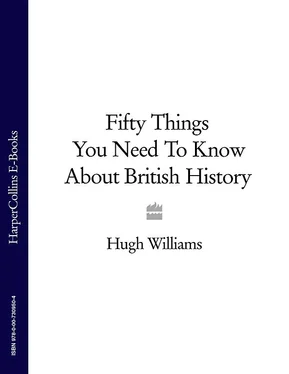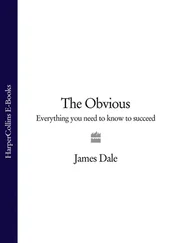Fifty Things You Need to Know About British History
Hugh Williams

Title Page Fifty Things You Need to Know About British History Hugh Williams
Introduction
Chronology
PART 1 Roots: The Origins of Britain
Introduction
1 Stonehenge 3100 to 2200 BC
2 The Roman Invasion of Britain 43 AD
3 Saint Augustine Arrives in Britain 597 AD
4 Alfred the Great Becomes King of Wessex 871 AD
5 The Battle of Hastings 1066
6 The Dissolution of the Monasteries 1536
7 The Birth of William Shakespeare 1564
8 The Act of Union 1707
9 The Irish Home Rule Bill 1886
10 Britain Signs the Treaty of Rome 1973
PART 2 Struggle: The Battles for Britain
Introduction
1 The Battle of Agincourt 1415
2 The Battle of Bosworth 1485
3 The Spanish Armada 1588
4 The Battle of Naseby 1645
5 The Battle of Blenheim 1704
6 The Battle of Trafalgar 1805
7 The Battle of Waterloo 1815
8 The Battle of the Somme 1916
9 The Battle of Britain 1940
10 The Battle of Goose Green 1982
PART 3 The Sea: Britain at Home and Abroad
Introduction
1 Sir Francis Drake and the Circumnavigation of the Globe 1577–1580
2 The Voyage of the Pilgrim Fathers 1620
3 The South Sea Bubble 1711–1720
4 The Battle of Plassey 1757
5 The Surrender of the British Army at Yorktown, Virginia 1781
6 The Abolition of Slavery 1833
7 The Afghanistan Massacre 1842
8 The Discovery of the Victoria Falls by David Livingstone 1855
9 The Partition of India 1947
10 The Arrival of the ss Empire Windrush at Tilbury Docks 1948
PART 4 Freedom: The Pursuit of Liberty
Introduction
1 Magna Carta 1215
2 The Peasants’ Revolt 1381
3 The Gunpowder Plot 1605
4 The Execution of Charles I 1649
5 The Glorious Revolution and the Bill of Rights 1688–1689
6 Sir Robert Walpole Becomes Prime Minister 1721
7 The Publication of Adam Smith’s The Wealth of Nations 1776
8 The Great Reform Act 1832
9 The Foundation of the Women’s Social and Political Union 1903
10 The Creation of the National Health Service 1948 305
PART 5 Ingenuity: Britain’s Innovations
Introduction
1 Chaucer’s The Canterbury Tales 1387
2 The Authorised Version of the Bible 1611
3 The Foundation of the Bank of England 1694
4 The Longitude Act 1714
5 James Watt Patents His Steam Engine Condenser 1769
6 The Metropolitan Police Act 1829
7 The Publication of Charles Darwin’s On The Origin of Species 1859
8 The Football Association Publishes ‘The Laws of Football’ 1863
9 The Foundation of the BBC 1927
10 Frank Whittle Designs the First Turbo Jet Engine 1930
Index
Acknowledgements
Copyright
About the Publisher
Some years ago I was browsing in a bookshop in America. I’ve always liked American bookshops; much of what they sell reveals the differences between our two countries. So it proved on this occasion. On the history shelf I found a paperback called What Every American Should Know About American History by Alan Axelrod and Charles Phillips. Intrigued by the title, I bought it.
It turned out to be an intelligent and very readable canter through American history from the days of Viking exploration to the end of the Cold War. In all it covered 200 significant events, outlining the principal facts relating to each one. Enjoyable, unpretentious and above all, simple, it presented – in a take-it-or-leave-it sort of way – the story of the most powerful nation on earth. I enjoyed it immensely and felt my knowledge of American history had improved effortlessly. I also felt something else rather less heart-warming.
This book, I thought, could never be published in Britain. It was far too simplistic for all those sophisticated people who banged on about the Empire in a vague, unsympathetic way, or wrote off the whole of nineteenth-century Britain as a smoke-enveloped slum of exploitation and capitalist greed.
Disraeli once said that his wife could never remember which came first – the Greeks or the Romans. Lots of people I met didn’t know whether Henry VIII came before or after Charles I; they couldn’t put the battles of Bannockburn, Bosworth and Blenheim in a historical order; and they hadn’t a clue about events of such fundamental importance to their country as the Glorious Revolution or the Great Reform Bill. They were all happy, well-connected, successful people, and these holes in their knowledge had not hampered their lives in any palpable way. Or had they? Wasn’t that the whole point? In Britain, lack of knowledge of the country’s past was becoming a badge of honour. All that mattered was now: look forward, never back. These people, I thought, would laugh at my American history book. They would dismiss it as an oddity, a typically American piece of patriotic fluff – quite unsuitable for the more refined British way of life. I kept the book by my bed and my thoughts to myself.
I also began work on my idea. As a television executive with experience in factual programmes including current affairs, history and the arts, I wanted to find a way to transfer the approach to history I’d found in that American book into a television series and a book about British history. They would have to run counter to current ingrained social attitudes. They would have more to do with the sort of history I read as a child – G. M. Trevelyan’s History of England , or G. M. Young’s Portrait of an Age – than the empathetic, judgemental, why-was-everyone-so beastly? school of history that seemed to be the preferred method of teaching it today. History should be straightforward, uncluttered and exciting. Above all, it should tell stories. The more I thought about it, the more I realised that the way to do this was to try to refine British history into a series of key events and explain the linkage between them. In this way I would be able to select the most interesting and exciting stories and put them into context, creating a framework so the readers and viewers would not only learn the details of a particular event, but also understand how it slotted into the progress of British history as a whole.
The idea was called ‘Fifty Things You Need To Know About British History’. Its moment has now arrived. Why?
There are two main reasons. The first is the growing realisation among many academics and politicians that the way we have been teaching history in our schools is wrong. By moving away from narrative – the broad sweep of history – to concentrating on isolated episodes we have educated a whole generation who may know quite a lot about, say, Oliver Cromwell and the Battle of the Somme, but pretty much zero about everything that happened in between. That’s not history.
Some distinguished historians have joined the debate about the way history is being taught in our schools. Simon Schama – no newcomer to television himself – argues for what he calls ‘the three Cs’: ‘comprehensive chronological continuity’. Tristram Hunt, a Cambridge academic who presented a television series on the English Civil War says: ‘What children need to learn first is a clear narrative. I’m all for empathy, but they can do that later.’ Schama agrees: ‘If empathy means weepily identifying with victims, it can be sentimental mush. The ability to put oneself in someone’s shoes requires a lot of knowledge.’
Читать дальше













